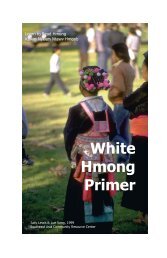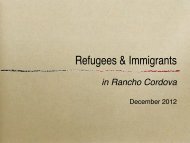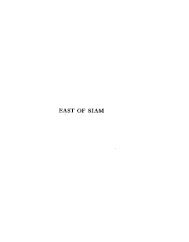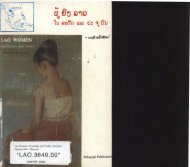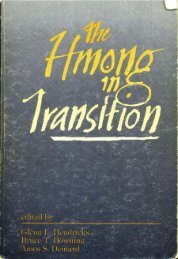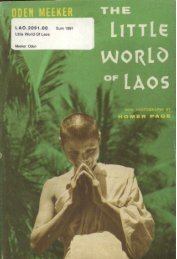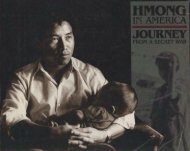PEOPLE
Grant, The Boat People - Refugee Educators' Network
Grant, The Boat People - Refugee Educators' Network
- No tags were found...
You also want an ePaper? Increase the reach of your titles
YUMPU automatically turns print PDFs into web optimized ePapers that Google loves.
I<br />
their way uninvited to Jqan, Of thcse, only thm have ken<br />
accepted for what, with the Japanex genius for obfu~ation, is mis-<br />
called 'permanent widenee',<br />
Japan, the rich man of Asia, has survived both the actual arrival<br />
on its shores of boat people - picked up usually not by the Jspaneac<br />
vessels that art most numerous in the Swth Chins Sea, but ships<br />
of other flags - and the worn of many western nmtions, Japan the<br />
unique, the pure, the homogeneous, has prestrvtd itself from contamination<br />
yet again, as it did in the nervous days after its long<br />
seclusion was broken by Commodore Perry in 1854 and again, in<br />
qdly uncertain times, when it was mupied after defeat in 1945,<br />
It has succeeded thi~ time by the deft combin~tion of firmness,<br />
the illusion of accepting some refugees under the specious 'permanent<br />
residence' category, and generous contributions to the WHCR<br />
that have deflected unfavourablc world opinion, Japan has already<br />
given $35 million and, in accordance with ia promise at the Geneva<br />
conference in July to pmy half the total spent by the UNHCR worldwide<br />
on the refugm in 1979, it has budgeted another $15 million,<br />
making r ton1 of about $50 million for 1979,<br />
The three boat people accepted as 'permanent residents' were Huu<br />
Loi Mai, a former south Vietnamese army officer, nnd his wife and<br />
small daughter. By late Scptwnber 1979,1685 of the 2860 who had<br />
reached Japan had already left, accepted for resettlement in other<br />
countries. The United States accepted 1223, Canada 152, Norway<br />
88, Belgium 61, Britain 46, Switzerland 42, Paraguay 31, France 22,<br />
Holland I I, and Australia 9. This third-country resettlement scheme<br />
of Japan's is unusual. France and Auseraiia, both very active in<br />
rtwnling boat people, began refusing to accept refugees pas4 on<br />
by Japan, in an efFm to make it change it^ exclusionary policies.<br />
But almoat certainly Japan will not change, and the losers, he pawns<br />
in this game of international mom1 one-upmanship, will be the refugees<br />
themselves, including everal who already have close relatives<br />
in France or Ausmlia - a condition that, in other circumstancts,<br />
would ensure their acceptance for rcsettlcmmt. Few of the 1172<br />
refugees who remain will wnle down like Mr Loi Mai and his small<br />
family.<br />
Shortly More the seven-member economic summit of industrial-<br />
iztd nations in Tokyo on 28-29 June 1979, J a p announced that<br />
it proposed to accept up to 500 boat people for sertlemtnt. The Japanese<br />
have begun professing several hundred applicants abroad<br />
under this proposal, but the nature of so-cdled 'permanent residcnce'<br />
in Japan makes it a hollow affair. Japan already has a minority<br />
population of about 600 000 people of Korean descent. Most we<br />
born in Japan but are not Japanat, just 'permanent residents: These<br />
Koreans and their children, as well as about 75 000 Chinese, are the<br />
legacy of Japanese colonialism in Korea, Taiwan and China.<br />
To apply for 'permanent residence' within the 500 quota, nvo<br />
basic and highly panicular conditions have to be wtisficd. First, the<br />
refugee must have wrne previous avaociation with Japan - either a<br />
relative already living in Japan, experience of working for the Japanesc<br />
embassy or a Japanese company in Vietnam, or experience of<br />
living in Japan as a student or technical trainee. Second, the applicant<br />
should have a job to go to in Japan, and a Japane~ sponsor.<br />
Ninety-nine farnilits, a total of 357 people, haw applied for entry<br />
under these conditions. By late September, twenty-two families, or<br />
69 people, had been approved; the remaining seventy-seven families,<br />
288 people, will probsbly make thcir way to Japan in due course.<br />
'The Japanese government says that no applicant under this scheme<br />
has bccn rejected, This is somewhat disingenuous. Besides the select<br />
nincty-nine families, a great many refugces in camps in the Philippines<br />
and South-East Asia (how many, the Japanese will not disclose)<br />
expressed their desire to go to Japan, but were saved the pain<br />
of refusal: they were simply not given the oppomnity to apply. In<br />
most cases they lacked previous connections with Japan; their<br />
chances of finding a job and a Japanese sponwr were therefore nil.<br />
Refugees who have ken mcceprcd for 'permanent residence'seem<br />
to have no illusion about the impermanence of their situation, They<br />
are grateful for the breathing space that, by chance association with<br />
Japan, thcy have been allowed. Most see their long-tern future not<br />
in Japan but in resettlement in a third country or, perhaps in the<br />
very long term, in their return to Vietnam.<br />
Japan's exclusionary politics, whatever gloss is applied to them,<br />
ltavc little room for humanitarian aitcria. The appcamnce of<br />
heartlessness this givcs is P cause of much anguish among westerninfluenced<br />
Japanese, but even such Japanese insist their country is<br />
not racist. Their refusal to acccpt refugees is based simply on their




